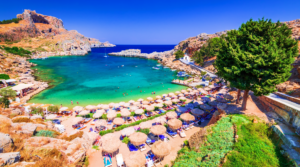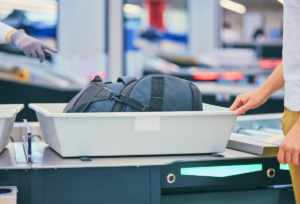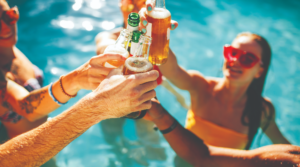Known as the Land of Fire and Ice, Iceland offers visitors an abundance of outstanding natural beauty, revitalising for the soul and mind. The emphasis in Iceland is on quality experiences: there’s the eclectic capital of Reykjavik, home to more than 50 bars on the main street, where you’ll find a great foodie scene and craft beers aplenty. Or venture further afield to explore expanses of waterfalls, glaciers, hot springs and geysers. There’s something for everyone to spend money on in Iceland. You’ll need to plan your trip well, as there’s so much to see and do. The local currency is Icelandic Krona (ISK).
Dining out in Iceland
Iceland is blessed with clear water and natural resources in abundance, and this purity and freshness is reflected in the cuisine. In Iceland you’ll find an excellent mix of foreign and local Icelandic dishes, made with natural ingredients. The Icelandic diet of modern day is very similar to that of the original settlers more than 1,000 years ago, combining the best of fresh ingredients.
A three-course meal for two people in a mid-range Icelandic restaurant will cost you around £80.
If you enjoy seafood, specialities to try include plokkfiskur, a comforting fish stew served with a rich sauce. Or try humar – Icelandic lobster, originating from the south coast.
Allowed to roam freely from spring to autumn time, Icelandic lamb is considered a gourmet meat. Three great examples are pylsa (hot dogs), slow-roasted lamb, and also lamb soup, a dish that has been eaten in Iceland for centuries.
Dark rye bread is always popular in Iceland and is often served with fish. Icelanders often make this bread by burying it near hot springs to bake.
A main meal in Iceland will cost you around £17 per person in an inexpensive restaurant – budget for at least £10-£15 extra for more upmarket restaurants.
The price of drinks
Drinks are known to be expensive in Iceland, so be sure to budget sufficiently. A 500ml bottle of domestic beer will cost you around £8, whereas an imported beer will set you back around £7.
A 750ml bottle of wine in a supermarket will cost you around £18. It is worth trying Kvöldsól, an organic wine produced by the only winery in Iceland – it’s made from crowberries, wild blueberries and rhubarb, not grapes, and is noted for its high level of antioxidants.
For spirits, be sure to try Reyka vodka, considered one of the best in the world. Or try Brennivin, Iceland’s signature unsweetened schnapps.
Tap water in Iceland is safe, pure and delicious to drink straight from the tap. There’s no need to purchase bottled water.
Out and about
Iceland offers its visitors perhaps one of the most naturally beautiful and invigorating outdoor experiences that you’ll ever experience. You’ll be blown away by outstanding natural beauty in all its wonderful forms.
Explore the vibrant capital on a three-hour Reykjavik city tour, you will experience the highlights of the history and culture of Reykjavik. Costing from approx. £42.
A must see is the Golden Circle Tour, a day trip to the Iceland’s most photogenic spots will cost you around £53. You’ll experience dramatic towering waterfalls, geysers and much more.
The picture-perfect Blue Lagoon is a must-visit – an outdoor geothermal spa for those looking to relax and take in nature at the same time. A visit will cost you around £50, but for that you’ll get to experience the healing powers of geothermal seawater.
A whale-watching tour will give you the chance to see some of the 20 species of whales on a sightseeing cruise, costing from £68.
If you’re a fan of Game of Thrones, take a tour of the filming locations from about £90.
If you’re feeling adventurous, Icelandic horseback riding could be ideal for you and is priced from £85.
How much spending money should I take to Iceland?
If you’re travelling to Iceland you will need to budget for approximately £90 per day per person or £630 per week to include meals and excursions. If you plan lots of excursions, you may need to increase your budget.
Tipping in Iceland
Tipping is not customary in Iceland. If there’s no service charge on your bill in restaurants, then tipping 10% of your bill is fine. It’s not customary to tip in hotels, but maids will appreciate a small tip. Bars may have tip jars, and again, around 10% is fine but otherwise a tip is not required. Tipping is not customary for taxis.
*Prices correct at the time blog was published and are subject to availability. T&C’s apply.






